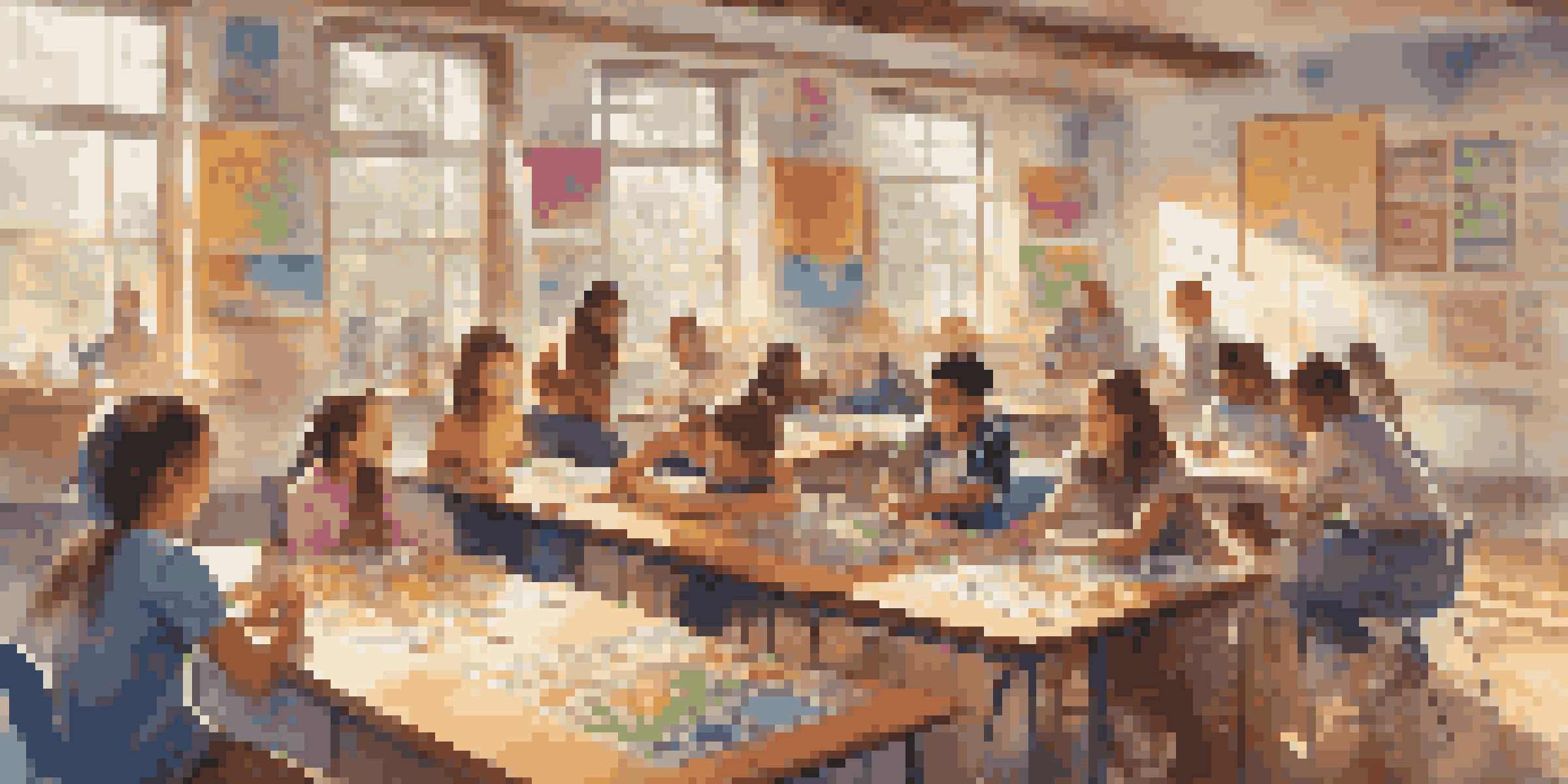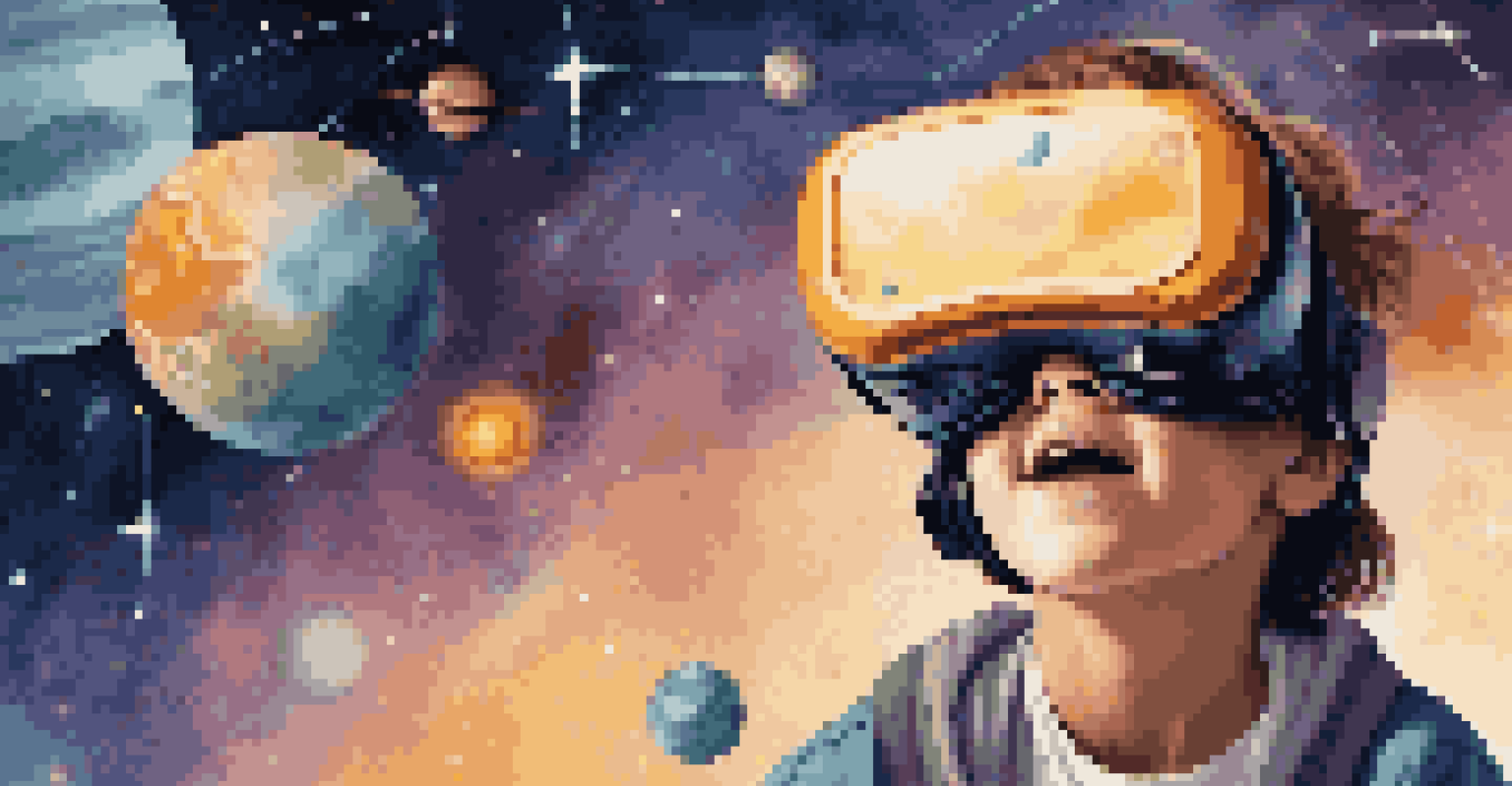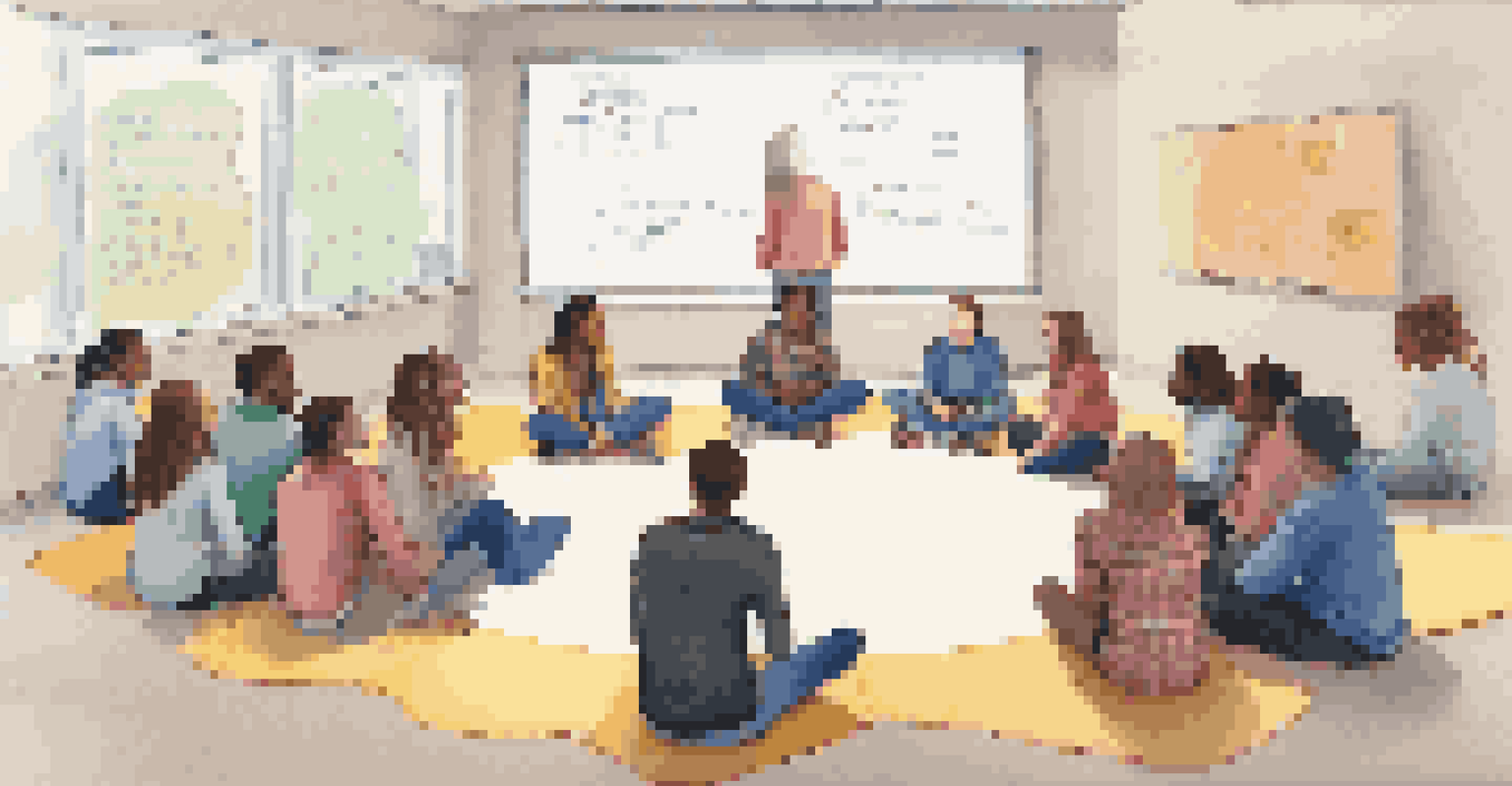Fostering Student Agency Through Game-Based Learning Strategies

Understanding Student Agency in Learning Dynamics
Student agency refers to the ability of students to take control of their own learning process. This concept emphasizes the importance of students being active participants rather than passive recipients of information. By fostering a sense of agency, educators can help students develop critical thinking skills and a sense of responsibility for their education.
Students who take ownership of their learning are more likely to be engaged and motivated.
When students feel empowered to make choices and decisions about their learning, they are more likely to engage deeply with the material. This engagement can lead to increased motivation and better retention of knowledge. Think of student agency as the steering wheel of a car; when students are in control, they can navigate their educational journey more effectively.
Game-based learning strategies can significantly enhance student agency by providing interactive and immersive experiences. These strategies encourage students to explore, experiment, and take risks in a safe environment, which ultimately helps build their confidence and autonomy.
The Role of Game-Based Learning in Education
Game-based learning integrates game design elements into educational contexts, making learning fun and engaging. This method can transform traditional educational settings into dynamic environments where students explore and learn through play. For instance, a math game that challenges students to solve puzzles can create an engaging atmosphere that encourages collaboration and problem-solving.

Using games in the classroom not only makes learning enjoyable but also promotes critical skills such as teamwork, communication, and strategic thinking. Students often find themselves more invested in their learning when it feels like a game rather than a chore. Imagine a classroom where students are excited to tackle challenges, much like they would in their favorite video game.
Empowering Student Agency
Fostering student agency enables learners to take control of their education, leading to greater engagement and motivation.
Moreover, game-based learning provides immediate feedback, allowing students to understand their progress and areas for improvement quickly. This real-time assessment helps them take ownership of their learning journey, fostering a growth mindset where mistakes are seen as opportunities to learn rather than setbacks.
Creating a Game-Based Learning Environment
To foster student agency through game-based learning, educators must create an environment that encourages exploration and creativity. This can be achieved by incorporating various game formats, such as digital games, role-playing, or board games. Each format provides unique opportunities for students to engage with content in diverse ways.
Learning is more effective when it is an active rather than a passive process.
Consider designing activities that allow students to choose their roles or the objectives they want to pursue. For example, in a history lesson, students could select different historical figures to research and represent, enabling them to take charge of their learning path. This autonomy fosters a sense of ownership and investment in their education.
Additionally, collaboration is key in a game-based learning environment. When students work together to solve problems or complete challenges, they not only learn from one another but also develop important social skills. By fostering a sense of community, educators can create a supportive atmosphere where students feel safe to take risks and express their ideas.
Implementing Game Mechanics to Enhance Learning
Incorporating game mechanics into educational activities can significantly enhance student engagement. Elements such as points, levels, and badges can motivate students to achieve their learning goals. For instance, a classroom could implement a points system where students earn rewards for completing tasks or helping peers, turning learning into a fun competition.
These mechanics can also provide structure and clarity, helping students understand what is expected of them. By setting clear objectives and milestones, educators can guide students towards meaningful learning experiences. Imagine a classroom where students are rewarded for their efforts, reinforcing positive behaviors and encouraging persistence.
Game-Based Learning Benefits
Integrating game-based learning strategies transforms traditional education into engaging, interactive experiences that promote critical skills.
However, it's essential to ensure that these mechanics align with educational goals. The focus should always remain on learning outcomes rather than merely the rewards. By thoughtfully integrating game mechanics, educators can create a balanced approach that inspires students to take ownership of their learning.
Encouraging Reflection Through Game-Based Activities
Reflection is a critical component of the learning process, and game-based learning can facilitate this through structured activities. After completing a game or challenge, educators can encourage students to reflect on their experiences, discussing what strategies worked, what didn’t, and how they can improve in the future. This practice helps students internalize their learning.
For example, after a group game, students might engage in a debriefing session where they share insights and lessons learned. This not only reinforces their understanding but also encourages them to articulate their thoughts, enhancing their communication skills. Think of it as a team huddle after a sports game, where players analyze their performance to improve for the next match.
Moreover, reflection fosters a growth mindset, allowing students to see challenges as opportunities for growth. By regularly incorporating reflective practices into game-based activities, educators can help students become more self-aware and responsible for their learning journey.
Assessing Learning Outcomes in Game-Based Contexts
Assessing student learning in a game-based context can be different from traditional methods. Instead of relying solely on tests and quizzes, educators can use observations, student reflections, and project-based assessments to gauge understanding. This holistic approach allows for a more comprehensive view of student progress and engagement.
For instance, a teacher might observe how well students collaborate during a team challenge or evaluate their problem-solving strategies in real-time. These assessments provide valuable insights into not just what students know but also how they apply their knowledge. It’s akin to a coach observing players during practice to identify strengths and areas for improvement.
Reflective Practices Enhance Learning
Encouraging reflection after game-based activities helps students internalize their learning and develop a growth mindset.
Incorporating a variety of assessment methods ensures that all students have the opportunity to showcase their learning in ways that suit their strengths. This flexibility encourages students to take ownership of their learning journey, as they can demonstrate their understanding through multiple avenues rather than a single standardized test.
Future Trends in Game-Based Learning and Student Agency
As technology continues to evolve, the landscape of game-based learning is set to change dramatically. Emerging technologies such as virtual reality (VR) and augmented reality (AR) are creating new possibilities for immersive learning experiences. These advancements can further enhance student agency by providing interactive environments where students can explore complex concepts in engaging ways.
Imagine a science class where students can virtually explore the solar system or conduct experiments in a 3D lab. Such experiences not only captivate students' attention but also provide them with the autonomy to learn at their own pace and follow their interests. This shift towards personalized learning experiences is crucial in fostering a sense of agency.

Moreover, as educators continue to embrace game-based learning, the focus will shift toward developing critical 21st-century skills, such as creativity, collaboration, and digital literacy. By empowering students through innovative learning strategies, we can prepare them for a future where adaptability and problem-solving are essential. Ultimately, the goal is to cultivate lifelong learners who are equipped to navigate an ever-changing world.